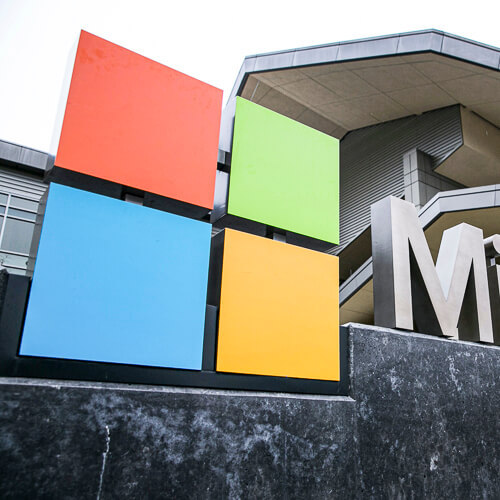Azure Operator Distributed Services, Azure Operator 5G Core, Azure Private 5G Core and Azure public MEC solution are among the new offerings from Microsoft.

Microsoft announced a series of new products and partnerships in conjunction with the MWC Barcelona trade show this week, an attempt by the company to fine-tune its story for the global telecoms market.
Figure 1:  (Source: Kristoffer Tripplaar/Alamy Stock Photo)
(Source: Kristoffer Tripplaar/Alamy Stock Photo)
The company's efforts come roughly two years after its acquisitions of Affirmed Networks, Metaswitch Networks and AT&T's core network operations – purchases that likely total around $2 billion.
"Microsoft comes to MWC with tremendous momentum in the telecommunications sector, thanks in large part to a number of recent milestones and announcements in our ongoing partnerships with telco industry leaders such as AT&T, Nokia, T-Mobile, Vodafone, Etisalat, BT, Amdocs, Lumen, Telstra, NTT and Singtel," said Francesco Venturini, CVP of Media and Comm for Microsoft, in a post published on the company's website on Sunday. "Microsoft empowers these and many other organizations to achieve more with a trusted and secure platform for productivity, business operations, network optimization, personalized experiences, and service innovation."
On the product side, Microsoft said it's hitting the show with a new version of its Azure for Operators product. First announced in 2020, the platform is being sold to mobile network operators in order to allow them to put their networking operations into the cloud.
This year, Microsoft said the product now includes the AT&T Network Cloud 2.7 software technology it bought from AT&T in a transaction announced last year. Dubbed Azure Operator Distributed Services, Microsoft said AT&T's technology is now included in its Azure for Operators platform.
"Azure Operator Distributed Services meets the security, resiliency, observability and performance needs required by operators to achieve meaningful results from digital transformation. It will enable operators to run all of their workloads (e.g., core, RAN, mobile and voice core, OSS, BSS) on a single carrier-grade hybrid platform," wrote Jason Zander, EVP of Strategic Missions and Tech with Microsoft, in a post to the company's website. "With Azure Operator Distributed Services, business operations can be streamlined, providing operators with simplified management, policy, and automation delivered via unified cloud management leveraging Azure Services, Azure Arc management, Azure Security, and Azure PaaS."
Microsoft also today released a private preview of its Azure Operator 5G Core and a public preview of its Azure Private 5G Core. The company's Azure Operator 5G Core is being sold to mobile network operators, while its Azure Private 5G Core is an as-a-service offer that "allows operators and system integrators to rapidly deploy enterprise private mobile networks and low latency applications on Azure Arc-connected edge platforms, such as Azure Stack Edge," the company explained.
Lockheed Martin, Samsung's Harman Digital Transformation Solutions (DTS), Northrop Grumman and TechMahindra are among the companies working with Azure Private 5G Core.
Finally, Microsoft also announced its new Azure public MEC solution, an "evolution" of the company's previous "Azure Edge Zones" offering. Microsoft said companies including Checkpoint, Couchbase, Game Cloud and VMware are using the product. However, company officials declined to provide details on how Microsoft might expand the service geographically.
The world's three big cloud computing providers – Microsoft, Amazon and Google – have all been working to develop specialities in the telecommunications market. The companies are all variously developing cloud networking services that they can sell to both enterprises and network operators themselves. The actions come as a growing number of telecommunications functions move from proprietary hardware and into software that can run in the cloud.
While a number of mobile operators have said they are hesitant to put their core networking functions into a cloud managed by another company, others – like Dish Network, Rakuten and AT&T – are not.
Related posts:
— Mike Dano, Editorial Director, 5G & Mobile Strategies, Light Reading | @mikeddano
About the Author(s)
You May Also Like











